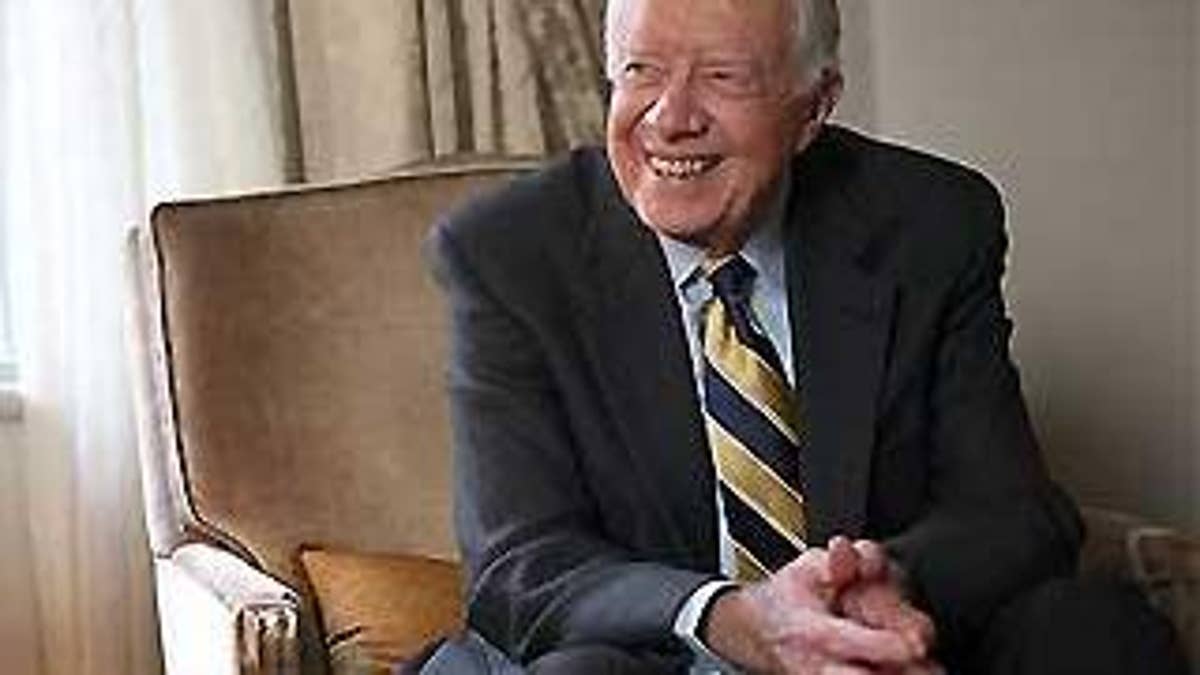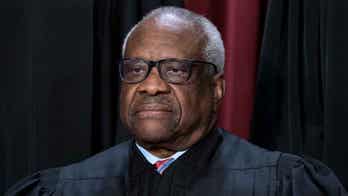
Former President Jimmy Carter said Monday he believes North Korea would be willing to give up its nuclear weapons for U.S. diplomatic recognition, a peace deal with South Korea and America, and if it got new atomic power reactors and free fuel oil.
"It could be worked out, in my opinion, in half a day," Carter said in an interview Monday with The Associated Press.
Last week, North Korea's Foreign Ministry said it would give up its nuclear weapons only if Washington establishes diplomatic relations with the regime and the U.S. ceases to pose a nuclear threat to the North -- an apparent reference to Pyongyang's long-standing claim that American nuclear weapons are hidden in South Korea. Both Seoul and Washington deny the accusation.
"I went over there in 1994 and I worked out a complete agreement with (former North Korean President) Kim Il Sung to eliminate all nuclear programs, and to let International Atomic Energy Agency inspectors come in without impediment," Carter said.
"President Clinton adopted that and put it into effect," in effect agreeing to give North Korea fuel oil and modernized, safe atomic reactors in exchange for dismantling its old reactors and allowing unfettered U.N. inspections.
But Clinton faced a hostile Republican-dominated U.S. Congress, and there was no progress toward diplomatic recognition between Washington and Pyongyang, which are still technically at war since the 1950-1953 Korean Conflict, which ended in a truce.
Carter's and Clinton's deals to dismantle the North Korean nuclear program -- then consisting of reactors with only a theoretical weapons-building capacity -- were shelved when President George W. Bush took office in 2001.
"When Bush came in he threw that in the wastebasket, and it started all over with the 'Axis of Evil,' and so therefore they began to reprocess their (nuclear) fuel," Carter said.
U.N. inspections were barred by North Korea, and Pyongyang tested a nuclear bomb in 2006.
Anxious to dismantle the country's atomic program, five regional powers hashed out a 2007 deal promising energy and other aid to Pyongyang in exchange for nuclear disarmament, but the agreement has been hindered by disputes between North Korea and the United States over how to verify what nuclear activities the country had undertaken in past decades.
Carter believes the deal could be accomplished almost instantly, with good will.
"North Koreans, in my opinion, whom I now fairly well, have always been willing to forego their nuclear capability if they have diplomatic relations with the United States, first of all, which is not easy," Carter told the AP.
"And if they have an assurance with the United States that it would not attack them militarily, of course with the proviso that North Korea not attack South Korea," he said.
Carter said the rest of the solution is as easy as replacing their old dangerous reactors with new, safer designs with guaranteed IAEA inspection access, and giving North Korea fuel oil to run electric generators until its power grid is improved.
Carter was in New York for the release of his new book, "We Can Have Peace in the Holy Land."




